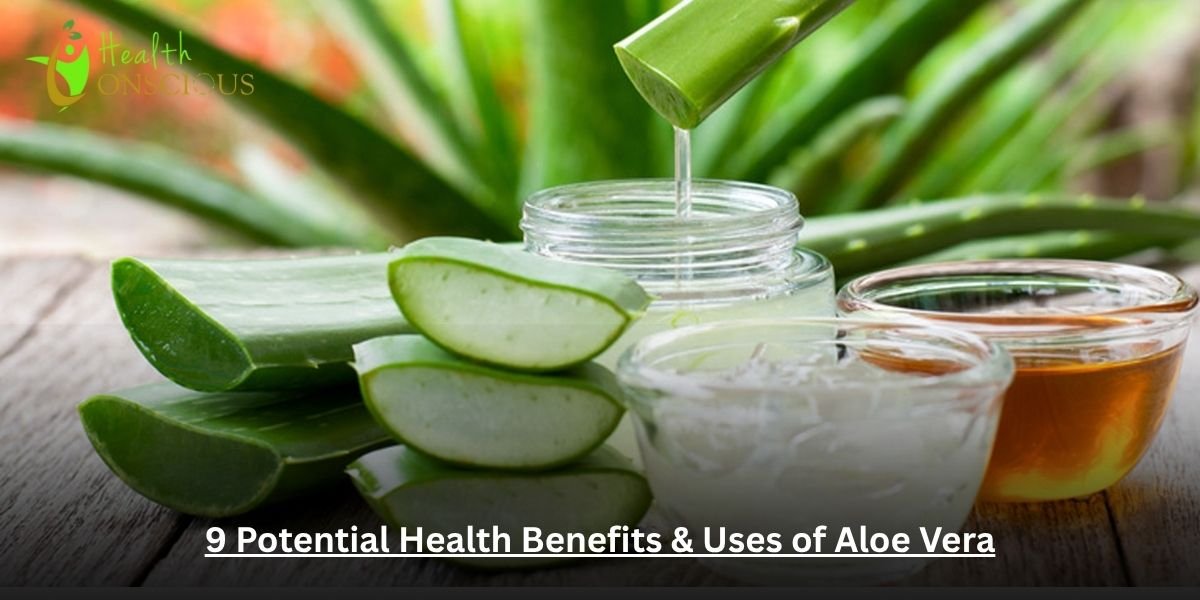Aloe vera has long been used as a traditional natural remedy across many cultures. Its soothing gel offers many health benefits, from calming skin to helping inside the body. Scientists keep finding out more about its amazing healing powers.
Key Takeaways
- Aloe Vera Gel offers significant relief for common skin issues like sunburn and irritation.
- The plant’s compounds can support oral hygiene and digestive comfort, including heartburn.
- While promising, its effects on blood sugar and blood pressure require more research.
- Specific components of Aloe Vera are being studied for potential anti-cancer properties, but this is early research.
- Always use Aloe Vera cautiously, especially internally, and consult a doctor for serious conditions.
What is Aloe Vera?
Aloe Vera, a succulent plant thriving in arid climates, has been revered for its therapeutic properties for thousands of years. From ancient Egyptian scrolls to modern wellness routines, its clear gel, found inside the leaves, and the yellow latex beneath the skin have been utilized for a variety of aloe vera uses for centuries. This versatile plant is packed with vitamins, minerals, enzymes, and amino acids, making it a natural powerhouse. Understanding what aloe vera is good for begins with recognizing its rich composition and diverse applications, often praised for its soothing and healing abilities across different cultures.
1. Aloe Vera Gel Soothes Sunburn and Skin Irritation
Aloe vera gel is widely celebrated for its ability to calm and cool irritated skin, making it a go-to remedy for minor burns, especially sunburn. The anti-inflammatory effects of aloe vera, linked to components such as aloin and glycoproteins, help ease swelling and redness. Applying the gel creates a protective layer, promoting healing and providing immediate relief from discomfort. For centuries, this natural remedy has offered soothing comfort after too much time in the sun or from general skin irritations.
2. Aloe Vera Improves Gum Health and Freshens Breath
Beyond skin care, aloe vera offers remarkable benefits for oral hygiene. Studies suggest that aloe vera in mouthwash can be as effective as conventional options in reducing plaque and gingivitis. Its antimicrobial properties help to combat bacteria in the mouth, which contributes to healthier gums and can lead to fresher breath. This makes the aloe vera benefits extend to maintaining a clean and healthy oral environment naturally.
A triple blind randomized controlled trial published in Oral Health Dent Manag. found that aloe vera mouthwash significantly reduced plaque and gingivitis.
3. Aloe Vera Gel Deeply Hydrates and Nourishes Skin
As a natural moisturizer, aloe vera gel excels at hydrating the skin without leaving a greasy residue. Its high water content, combined with beneficial vitamins (like A, C, and E) and minerals, helps to improve skin elasticity and reduce the appearance of fine lines. Regular application of aloe vera gel benefits the skin by keeping it supple, smooth, and well-nourished, promoting a healthy glow from within. It helps to lock in moisture, making it an excellent choice for various skin types.
4. Aloe Vera Calms Heartburn and Aids Digestion
Aloe vera’s soothing properties extend to the digestive system, where it can help alleviate symptoms of heartburn and acid reflux. The plant’s anti-inflammatory compounds may reduce irritation in the esophagus and stomach lining.
A review in the Journal of Traditional Chinese Medicine noted that aloe vera showed promise in reducing symptoms of gastroesophageal reflux disease (GERD).
Regularly consuming aloe vera juice may also aid overall digestion by promoting a healthy gut environment and reducing occasional digestive discomfort.
5. Aloe Vera Helps Support Clear Skin for Acne
For those battling acne, aloe vera can be a valuable natural ally in the journey to clear skin. Its anti-inflammatory and antimicrobial properties help to reduce the redness and swelling associated with breakouts while fighting the bacteria that contribute to acne development.
When applied topically, aloe vera gel can calm inflamed skin and help in the healing process of blemishes, making it a gentle yet effective addition to an acne care routine. Many find that aloe vera gel benefits the skin by promoting a clearer complexion without harsh chemicals.
6. Aloe Vera Gently Relieves Occasional Constipation
Certain compounds found in the latex of the aloe vera plant, specifically anthraquinones like aloin, possess natural laxative effects. When consumed, these compounds can stimulate bowel movements, offering gentle relief for occasional constipation.
However, it’s crucial to use aloe vera latex cautiously and in moderation, as excessive use or improper preparation can lead to side effects.
The National Center for Complementary and Integrative Health (NCCIH) advises caution with oral aloe latex due to potential adverse effects.
7. Aloe Vera May Help Balance Blood Sugar Levels
Emerging research suggests that oral aloe vera may play a role in managing blood sugar levels, particularly for individuals with prediabetes or type 2 diabetes. Some studies indicate that it can help lower fasting blood glucose and even improve hemoglobin A1c (HbA1c) levels over time.
While promising, this area of aloe vera benefits requires more extensive human trials, and it should not be considered a substitute for conventional diabetes treatment or medication. Always consult a healthcare provider before using aloe vera for blood sugar management.
8. Aloe Vera Supports Healthy Blood Pressure
Although studies are still ongoing, certain findings suggest aloe vera may aid heart health, potentially influencing blood pressure. Its general anti-inflammatory and antioxidant properties, along with its potential effects on blood sugar and cholesterol, might contribute to overall circulatory well-being.
However, specific direct studies proving aloe vera’s significant ability to lower high blood pressure are limited, and it should be viewed as a supportive measure, not a primary treatment for hypertension.
9. Aloe Vera Shows Potential in Cancer Research
The field of cancer research is constantly exploring new avenues, and compounds found in aloe vera have shown intriguing potential in preliminary studies. Lab and animal studies have indicated that certain aloe components might possess anti-cancer properties, such as inhibiting tumor growth or inducing cancer cell death, particularly in cases like breast cancer..
It’s vital to emphasize that these findings are in the very early stages of research, and Aloe Vera is not a proven treatment for cancer in humans. This area needs extensive clinical trials before any definitive conclusions can be drawn.
What’s the Right Amount of Aloe Vera?
Determining the right amount of aloe vera depends heavily on its form and intended use. For topical application, like soothing sunburn or skin irritation, a thin layer of pure aloe vera gel can be applied directly to the affected area as needed. For oral consumption, whether as juice or capsules, dosages can vary widely.
Generally, it’s advised to start with a small amount, such as 1-2 ounces of aloe vera juice daily, and gradually increase if well-tolerated. Always check the product label for specific instructions, as concentrations can differ between brands. For any internal use, especially for specific health conditions, it’s crucial to consult a healthcare professional to determine a safe and effective dosage for your individual needs.
Potential Side Effects of Using Aloe Vera
While generally considered safe for topical use, oral consumption of aloe vera, particularly the latex, can come with potential side effects. The most common issues include abdominal cramps and diarrhea, especially with the latex, which can lead to dehydration and electrolyte imbalances if used excessively.
Other less common side effects might include allergic reactions (for both topical and oral use), liver problems (rarely, with long-term high doses of latex), and kidney dysfunction. It’s always wise to perform a patch test when using aloe vera gel on the skin for the first time to check for any sensitivities.
Who Needs to Be Careful with Aloe Vera?
Not everyone should use aloe vera, particularly orally. Some individuals should be cautious or completely avoid its use cause of associated risks.
- Pregnant and Breastfeeding Women: Oral aloe vera is not recommended as it may stimulate uterine contractions or pass into breast milk.
- Children: Young children are more susceptible to the laxative effects of oral aloe vera.
- Individuals with Digestive Conditions: Those with Crohn’s disease, ulcerative colitis, or intestinal obstruction should avoid oral aloe vera, especially the latex, as it can worsen symptoms.
- People with Kidney or Liver Issues: Oral aloe vera, particularly the latex, may exacerbate these conditions.
- Those on Certain Medications: Aloe vera can interact with various drugs, including diuretics, blood thinners, diabetes medications, and heart medications, potentially altering their effects.
Always consult a doctor before starting any new supplement, especially if you have existing health conditions or are taking prescription medications.
Final Thoughts
Aloe vera stands out as a remarkable plant with a long history of beneficial uses, ranging from soothing skin irritations to supporting digestive health. While the aloe vera benefits are diverse and compelling, it’s important to approach its more systemic uses, such as for blood sugar or cancer research, with a clear understanding that much of the evidence is still emerging. It is not a miracle “cure” for diseases. Embracing the proven aloe vera uses while remaining informed and cautious about less established claims is key. Always prioritize professional medical advice for any health concerns and consider aloe vera as a complementary support, not a replacement for conventional treatment.




1 Comment
Comments are closed.